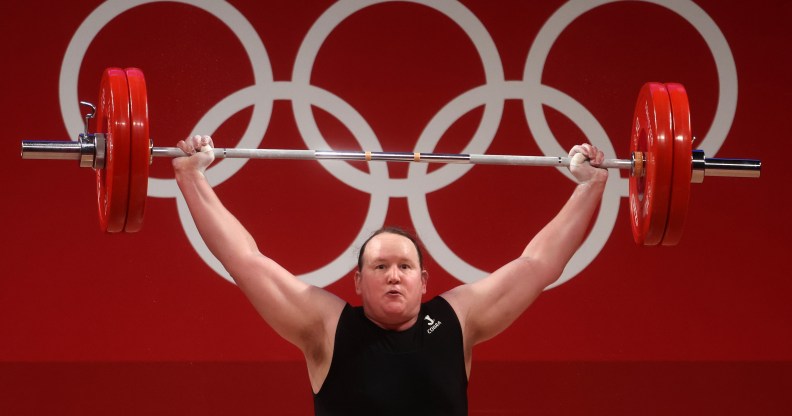World Athletics not banning trans athletes – but is making it harder for them to compete

New Zealand’s Laurel Hubbard was the first out trans woman to compete in the Olympics. (Chris Graythen/Getty Images)
World Athletics has proposed strengthening regulations to trans women competing in track and field events – but says it isn’t planning an outright ban.
The governing body said on Saturday (21 January) it was consulting with member federations on a proposal that would tighten testosterone limits on trans athletes who compete in women’s track and field events.
World Athletics claimed that it had arrived at its “preferred option”, but stressed no final decision has been made as to its rules.
“Putting forward a preferred option is the best way to gather constructive feedback, but this does not mean this is the option that will be presented to council or, indeed, adopted,” a World Athletics statement said.
The proposed rules would cap the levels of testosterone allowed in order to compete in women’s events at half the current limit, while also doubling the amount of time an athlete would need to remain below that level, from 12 months to two years.
The governing body said a final decision on the proposals should be made in March.
The proposed new rules come after a number of shake-ups in the sporting world regarding trans competitors, including World Athletics and FIFA (international football’s governing body) claiming it was reviewing their transgender eligibility policies, after swimming’s world governing body, FINA (now known as World Equatics), passed a rule effectively banning trans women from participating in women’s events.

World Athletics president, Sebastian Coe, told BBC Sport in June last year that he believes “biology trumps gender”, and praised FINA for voting to restrict trans athletes’ participation in elite women’s competitions.
The new guidelines bar any trans woman who has gone through one of the early stages of puberty by the age of 12.
“If it’s a judgment between inclusion and fairness, we will always fall down on the side of fairness,” Coe told the BBC.
“We see an international federation asserting its primacy in setting rules, regulations and policies that are in the best interest of its sport.
“This is as it should be. We have always believed that biology trumps gender, and we will continue to review our regulations in line with this. We will follow the science.”
However, scientists and experts have agreed that there is no good reason to ban trans people from elite sports.
A spokesperson for trans charity Mermaids told PinkNews: “Trans women do not have an unfair advantage in sports and their participation does not harm trans women.
“To even be considered eligible to compete at an elite level, female trans athletes must undergo hormone therapy and rigorous testing for at least a year prior to training and competing.
“As we’ve seen with athletes such as [swimmer] Lia Thomas and [weightlifter] Laurel Hubbard, who’ve both been beaten by cis-female athletes in their respective sports, being trans does not guarantee a win.”
How did this story make you feel?

